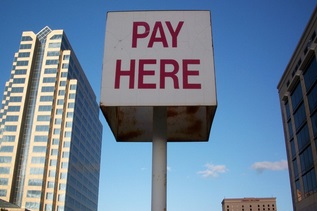A life free from addiction means a more secure financial future, better relationships, and better physical and mental health. Individuals who pay for addiction treatment rather than trying to quit cold turkey on their own are typically more successful in achieving long term recovery.
So how can you pay for addiction treatment when costs range from several hundred to several thousands of dollars per treatment episode? Is there such thing as affordable addiction treatment? We review here and invite your questions about finding affordable addiction treatment at the end.
Paying for addiction treatment
It’s no secret that addiction treatment is expensive. In fact, some addiction treatment programs can cost thousands of dollars over the course of a few weeks. While most outpatient rehabs average $100+ per day, inpatient addiction treatment can cost $700+. With these prices, it’s not unusual for some people to think that paying for addiction treatment is impossible. However, when struggling with an addiction, oftentimes you can’t afford not to pay for addiction treatment.
Affordable Care Act and addiction treatment
The Patient Protection and Affordable Care Act, better known by some as ObamaCare, was signed into law in March of 2010. Under this law, insurance companies that offer addiction treatment coverage are required to do so at a rate no higher and a level no lower than those of other types of medical problems. This means that individuals who have health insurance will not have to pay more for addiction treatment or be forced to accept lower quality care.
Financing addiction treatment
So how do you finance addiction treatment? You may have untapped resources of your own that you can use to help finance your addiction treatment. Here are some suggestions.
- Addiction treatment can be expensive even if you have insurance to help cover the costs. Go over your insurance policy with a fine toothed comb. And if your coverage isn’t adequate, speak with about direct costs with the treatment center itself.
- Use your own resources for funding. This includes savings accounts, life insurance policies and retirement funds.
- Pay out of pocket with the treatment center via payment plan. Many rehab facilities will also be willing to work with you when it comes to financing addiction treatment. For instance, some facilities may be willing to set up a payment arrangement to help you pay for your treatment over time.
- Seek a personal loan. A loan is another option you may have when looking for ways to finance your addiction treatment. You may be able to get a personal loan or mortgage refinance from a bank, or a loved one may be willing to help you pay for treatment.
- Find a sliding scale addiction treatment center. Addiction treatment facilities often have sliding scale fees – all you have to do is ask. These are variable fees that are based on a person’s ability to pay for treatment. In order to qualify for reduced fees, you will be required to provide information about your income, as well as your household size and expenses. This information will be used to determine how much you can reasonably be expected to pay.
Help paying for addiction treatment
If you have no insurance and are unable to pay for addiction treatment through any other means, there’s still hope. This is especially true if you are a low-income individual. Government funded programs exist all around the country. To learn more about how you can benefit, call 1-800-662-HELP for a referral.
Another often untapped resource for help paying for addiction treatment is local non-profit groups. These groups will sometimes offer grants to individuals in need of treatment, and some may even offer free or low-cost addiction treatment.
Addiction treatment payment questions
Navigating the world of addiction treatment can be tricky and frustrating, but we’re here to help. If you still have addiction treatment payment questions, don’t hesitate to leave them in the comments section below. We look forward to answering any questions you may have.









Related Posts